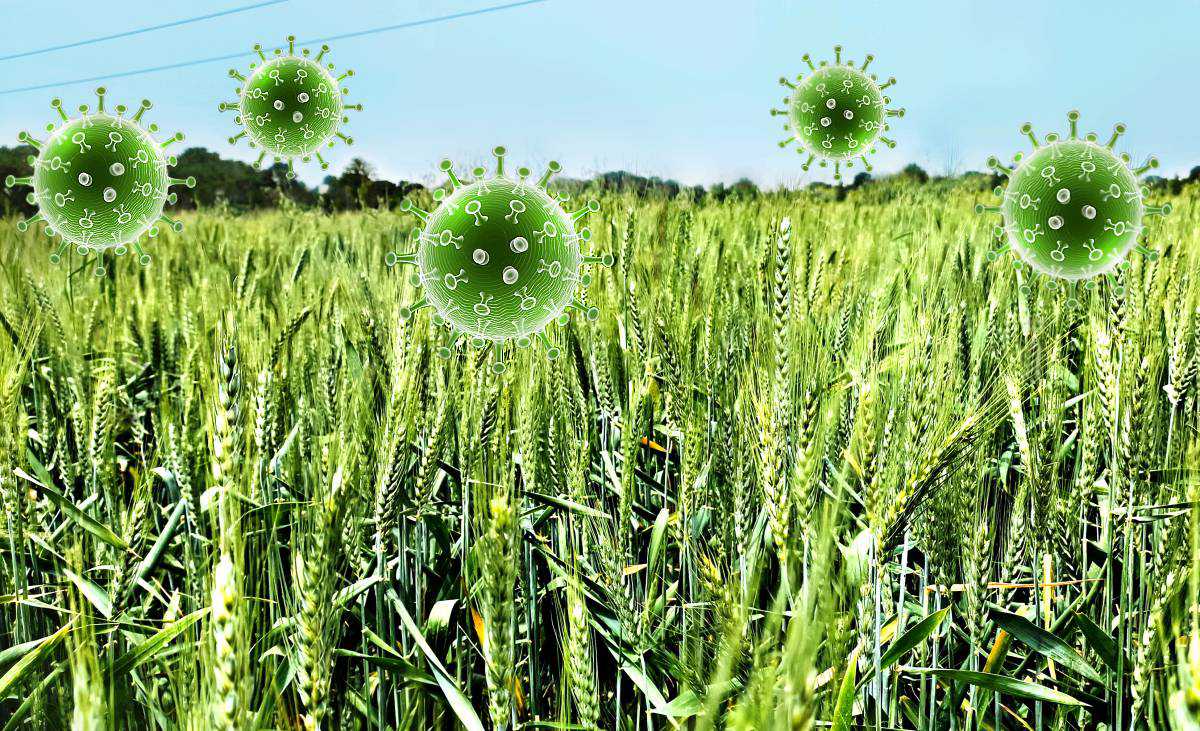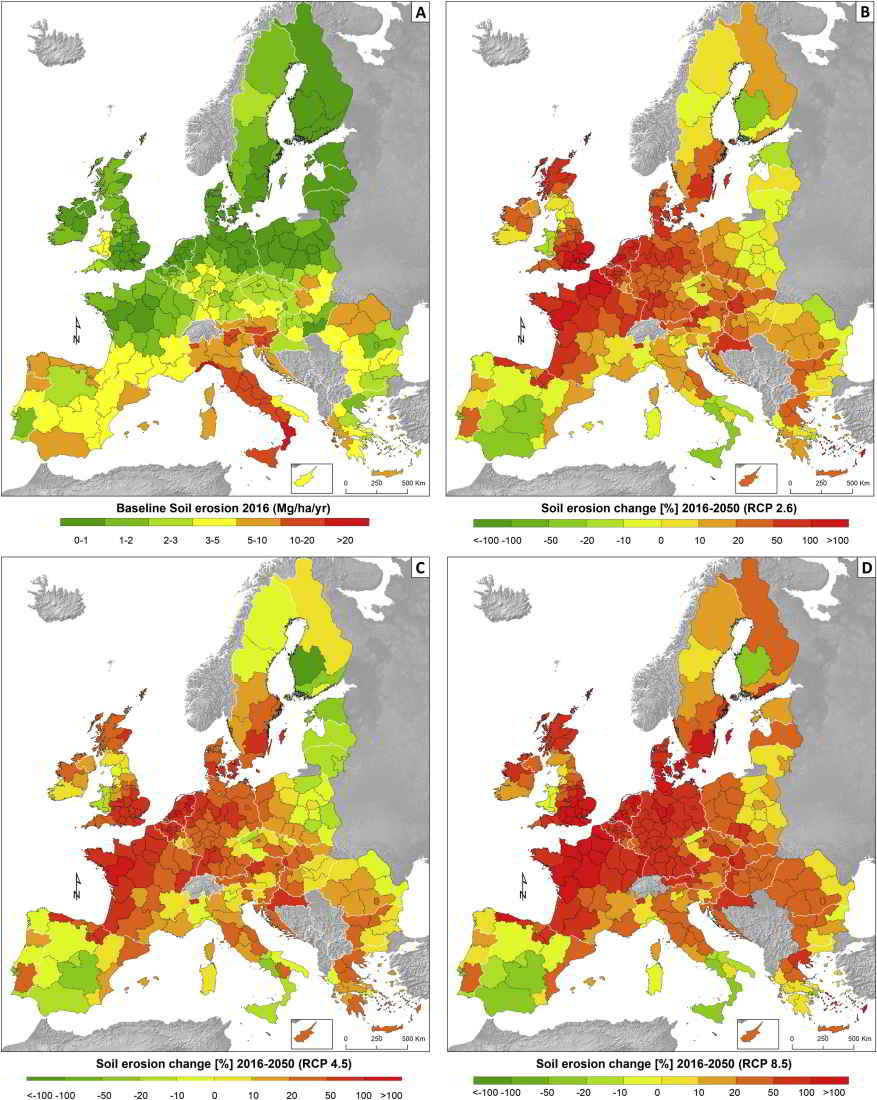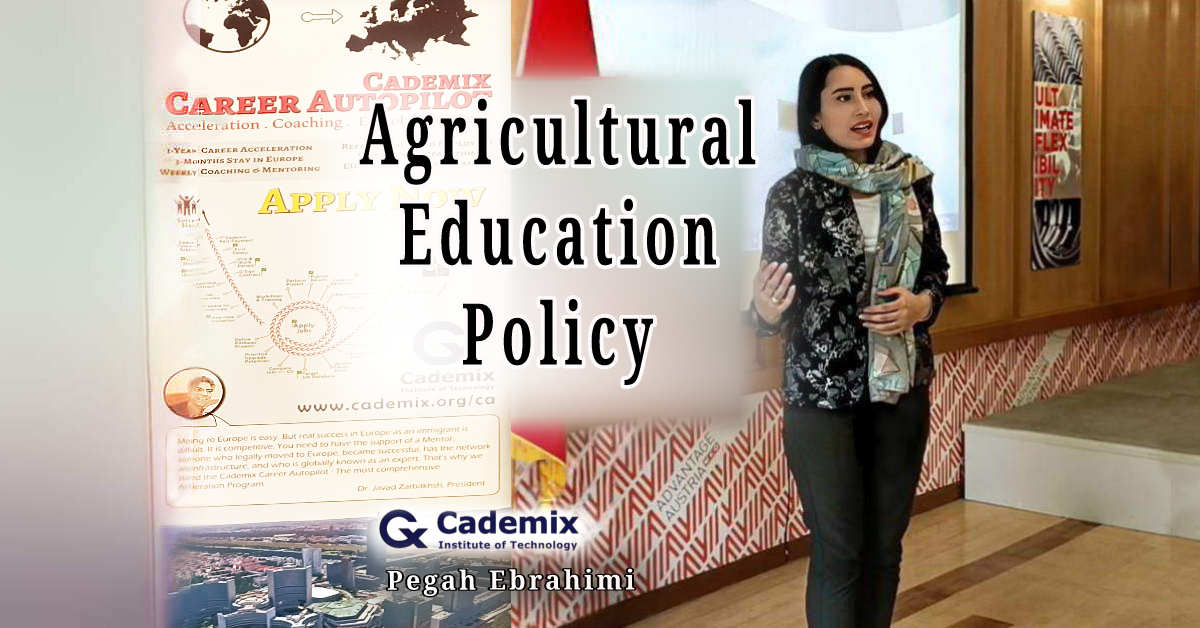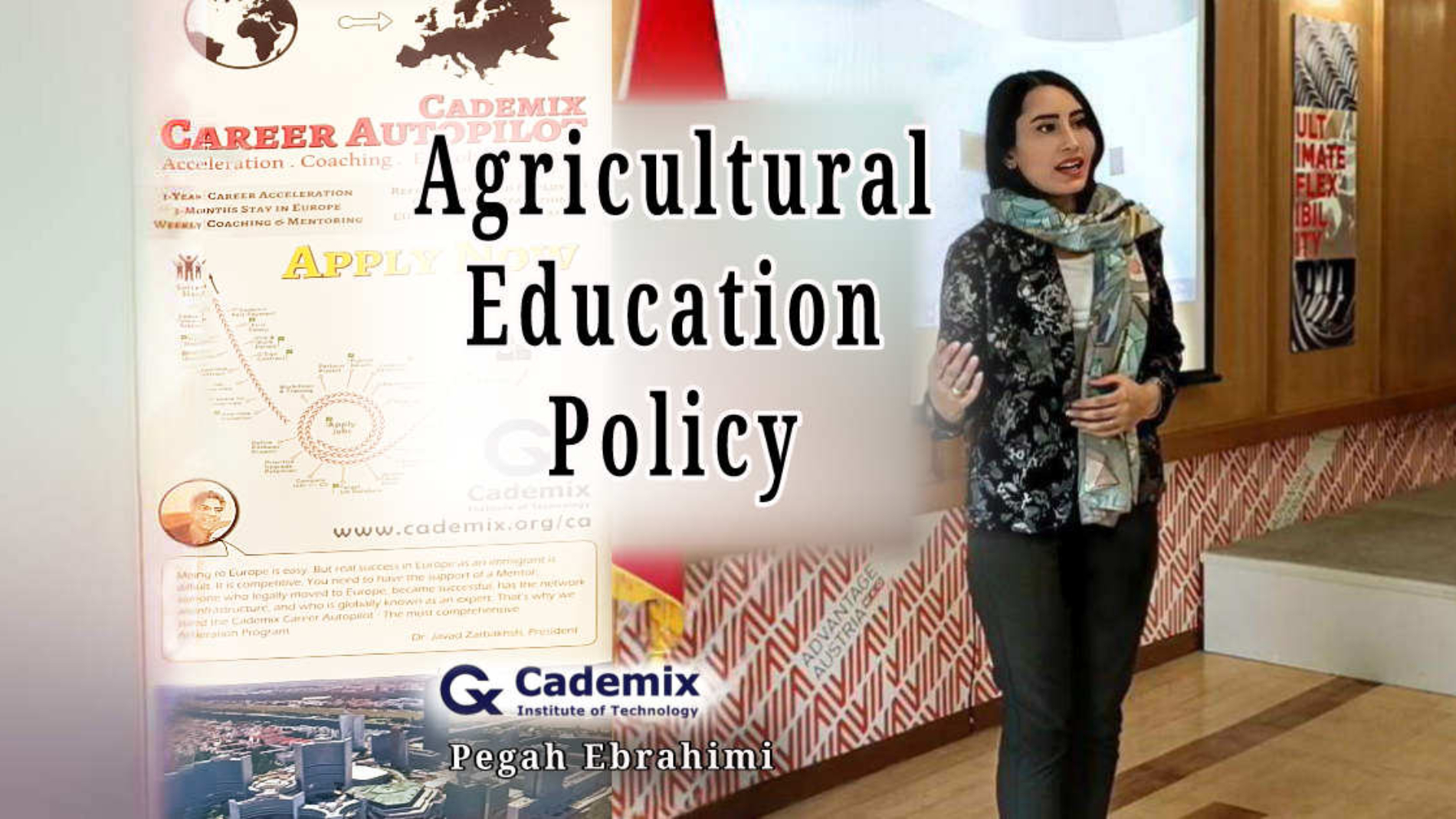Abstract
Agricultural education policy is a must to control everything. In this case, education will take a new place and the reason for its importance in relation to agricultural policy will be clear. For example, problems such as global warming, soil erosion, war, disease, population and climate changes require training to change the structure or transform this sector into a stable system. Therefore, we must make structural changes in the agricultural education policy. Because this is a prerequisite for other industries and the most important solution based on future predictions. In this article, we examine the reasons, results and important solutions. By: Pegah Ebrahimi Cademix Institute of technology
What is «Agricultural Education Policy» and how important is it
First there is this question: How can we make the lives of future generations safer? In fact, the importance of food security is determined by the answer to this question. Many large industries such as pharmaceutical, food, textile, cosmetic, wood, health industries and their sub-sectors are derived from agricultural industry. During the time, All industries have tried to improve. So agriculture as the core of other industries really needs a new plan for the future. We can now focus more on agricultural education policy. Not only to offset the effects of Corona virus and the Ukraine war, but also to enter the future. To compensate for the anticipated changes, we must stay one step ahead of them and plan how to adapt to them before the change occurs.
Issues that show us the Weaknesses of Agriculture:
Population Growth
The human population will reach 9.8 billion by 2050.
So, intensive agriculture is important to feed the population. Applying an intensive agricultural system means increasing crop production per unit area. So we have to define the agricultural policy system in a different way.

Russia’s war against Ukraine
Russia’s war against Ukraine has caused significant damage to the agricultural sector from miles away. For example, one of the worst harms is the decline in imports related to human and livestock nutrition in the agricultural sector.
Also, a statistic from the Federal Statistics Office of Germany show a sharp increase of 22.5% in the price of agricultural products in February 2022 compared to the previous year. The increase in prices is due to the decrease in production and increase in demand.
Covid-19 Pandemic
The Covid-19 epidemic has shocked agricultural markets. Its effects are certainly to be reflected in the next decade. Even in OCED countries such as Germany, we saw declining exports, limited imports, declining household consumption, and declining investment. It led to a slowdown in economic growth following the outbreak of the Corona virus.

Farm labor shortage
The decline in the total number of farmers depends on the retirement or replacement process: either an increase in the number of farmers exiting agriculture, or a decrease in the number of people entering agriculture, or both. For example, The Federal Statistical Office of Germany (Destatis) shows a 15% decrease in the labor force in agriculture in the 2020 census compared to the 2010 census. Therefore, the correct execution of agricultural education policy predicts better statistics in the future.
Soil erosion by water
According to forecasts, the increase in rainfall in Europe will cause severe soil erosion by water. So Agro-Environmental policies are an important mechanism in finding alternative solutions. The Germany, Netherlands, Denmark, Czech Republic, Slovakia and Poland are predicted to experience the biggest mean relative increase (>50%) in rainfall erosivity by 2050.

The Potential of the World today in Expanding the Agricultural Education Policy
In today’s world, important steps have been taken to expand the policy of agricultural education with different economic and commercial purposes and more recently to protect the environment.
• Despite the reduction of farms, production through efficient methods has generally increased
• Use of modern agricultural tools and machinery: This has certainly offset the decline in agricultural businesses over time.
How can «Agricultural Education Policy» in Readers the security of future generations?
By finding hidden talents through active companies. Maybe it’s better to plan for younger ages as well.
Also, using methods to create interest in this field and attract in related educational environments
Furthermore, creating job opportunities and attracting people in the agricultural sector
But the most of important and basic solution is: Using the creative spirit of children and teaching them
Why children?
Children up to the age of 6 have the ‘Absorbent Mind’. So, they can learn about nature with childish tools and methods. By focusing on this type of education, children grow up who are going to offer new solutions in various fields of agriculture in the future, such as biotechnology and agricultural sustainability. Therefore, This style can remain in children’s memories.
An example of Agricultural Education Policy:
Children from 4 to 6 years old in a safe environment can plant the seeds with the help of the supervisor, then observe the stages of germination and growth, harvest the plants and use them at home. Then more conceptual education can be used for the same children at older ages. It is not just about finding talent, it is an agricultural education policy to motivate them. The result will certainly be amazing in the future. If every 6-year-old have such experiences, we will build the future by a generation. The role of agricultural politicians is to create a dedicated organization to make this program a reality.


Conclusion
In this article, the report attempts to sum up recent agricultural education policy trends. Also we try to evaluate the influencing factors on it. In addition, refers to the need to create infrastructure. Whatever happens in the world targets agriculture as one of the first vulnerable parts of the country. We know that we will face many changes in the future. Therefore, a predetermined fundamental change in agricultural education is a serious need. The purpose of this article is to express the importance of education in the field of agriculture as a policy measure and in the other hand, make the necessary changes in its implementation.
About the Author

Pegah Ebrahimi is a graduate of Plant Production Technology from Imam University of Agriculture. She is an Environmentalist and also interested in agricultural policy and related daily news, and wants the world to be a green space for the next generation. LinkedIn Gmail Cademix
Keyboard Related to Agricultural Education Policy
agricultural education policy, food of the future, soil erosion, farm labor, population growth, environment, Covid-19, Russia’s war, Absorbent Mind, educational patterns, agricultural industries, Pegah Ebrahimi Cademix

